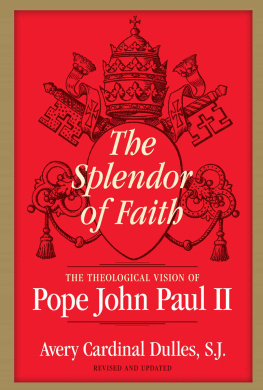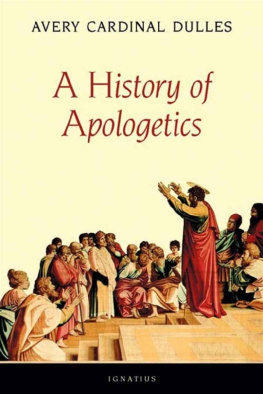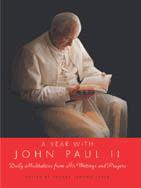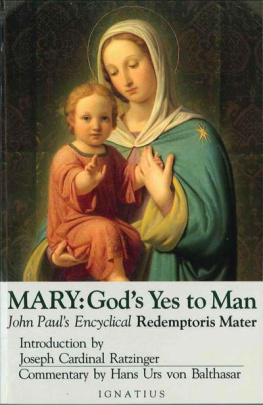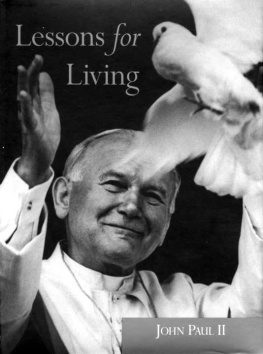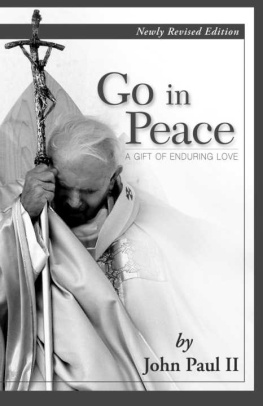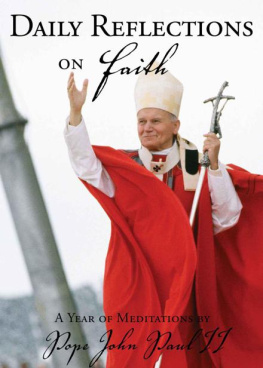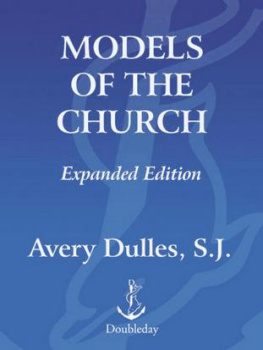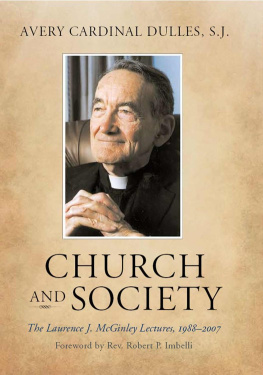Avery Cardinal Dulles - The Splendor of Faith: The Theological Vision of Pope John Paul II
Here you can read online Avery Cardinal Dulles - The Splendor of Faith: The Theological Vision of Pope John Paul II full text of the book (entire story) in english for free. Download pdf and epub, get meaning, cover and reviews about this ebook. year: 2018, publisher: The Crossroad Publishing Company, genre: Religion. Description of the work, (preface) as well as reviews are available. Best literature library LitArk.com created for fans of good reading and offers a wide selection of genres:
Romance novel
Science fiction
Adventure
Detective
Science
History
Home and family
Prose
Art
Politics
Computer
Non-fiction
Religion
Business
Children
Humor
Choose a favorite category and find really read worthwhile books. Enjoy immersion in the world of imagination, feel the emotions of the characters or learn something new for yourself, make an fascinating discovery.
- Book:The Splendor of Faith: The Theological Vision of Pope John Paul II
- Author:
- Publisher:The Crossroad Publishing Company
- Genre:
- Year:2018
- Rating:4 / 5
- Favourites:Add to favourites
- Your mark:
- 80
- 1
- 2
- 3
- 4
- 5
The Splendor of Faith: The Theological Vision of Pope John Paul II: summary, description and annotation
We offer to read an annotation, description, summary or preface (depends on what the author of the book "The Splendor of Faith: The Theological Vision of Pope John Paul II" wrote himself). If you haven't found the necessary information about the book — write in the comments, we will try to find it.
The Splendor of Faith: The Theological Vision of Pope John Paul II — read online for free the complete book (whole text) full work
Below is the text of the book, divided by pages. System saving the place of the last page read, allows you to conveniently read the book "The Splendor of Faith: The Theological Vision of Pope John Paul II" online for free, without having to search again every time where you left off. Put a bookmark, and you can go to the page where you finished reading at any time.
Font size:
Interval:
Bookmark:

To
His Holiness Pope John Paul II with prayerful felicitations on the twenty-fifth anniversary of his election as Bishop of Rome and Supreme Pastor of the People of God October 19, 1978 October 19, 2003

The Crossroad Publishing Company
www.crossroadpublishing.com
Copyright 1999, 2003 by New York Province, Society of Jesus
All rights reserved. No part of this book may be reproduced, stored in a retrieval system, or transmitted, in any form or by any means, electronic, mechanical, photocopying, recording, or otherwise, without the written permission of The Crossroad Publishing Company.
Nihil Obstat: Francis J. McAree, S.T.D., Censor Librorum
Imprimatur: + Patrick Sheridan, D.D., Vicar General,
Archdiocese of New York
Date: January 4, 1999
The Nihil Obstat and Imprimatur were issued for the original 1999 edition.
Printed in the United States of America
Library of Congress Cataloging-in-Publication Data
Dulles, Avery Robert, 1918
The splendor of faith : the theological vision of Pope John Paul II / Avery Dulles. Rev. and updated ed.
p. cm.
Includes bibliographical references and index.
ISBN 0-8245-2121-8 (alk. paper)
1. John Paul II, Pope, 1920- 2. Catholic Church Doctrine. I. Title. BX1378.5.D85 2003
230.2092 dc21
2003011608


Almost as soon as John Paul II assumed office as pope, I was struck by his theological acumen. In his first encyclical, Redemptor hominis, he touched on a wide range of issues, which he was to examine more fully in subsequent documents. In particular I noted the potential of his description of the Church as the community of disciples. As I studied his theology in greater detail, I found what I took to be the key to his thought, if any one insight can deserve that name. It was his metaphysical personalism. He was a personalist but did not stop, as so many others did, with a phenomenology of experience. He probed behind the appearances. The human mind and heart, he teaches, are built for objective truth, without which they would spiritually starve. Not only is reason ordered to truth that surpasses the material universe (truth that is meta-physical); it has an unquenchable thirst for a wisdom that can be satiated only by the sheer gift of the vision of God.
As persons, we possess a definite nature in common with other members of our species. We are, as Aristotle would say, rational animals or, in more Platonic language, embodied spirits. Both the spirit and the body pertain essentially to human existence. Whatever be the preferred definition, Wojtya correctly insists that there is something irreducibly unique and subjective about every person. Neither the subjective nor the objective dimension may be allowed to obliterate the other.
From his personalist perspective, Wojtya has been able to rearticulate many Catholic doctrines in fascinating waysbut always in complete fidelity to Catholic tradition and especially the Second Vatican Council. He understands faith in interpersonal terms, as the trusting commitment of person to person. This means, for the Christian, a total commitment to the divine person of Jesus Christ. Spiritual progress for this pope consists in deepening ones personal relationship to God, who is encountered in the words of Scripture, in sacramental worship, and in prayer. Heavily engaged though he is in the active ministry, the pope accords a certain primacy to contemplation and adoration.
Human beings, according of Wojtya, are called to grow as persons through participation in community. Treating others as persons, they seek to resolve tensions and disagreements through sincere and respectful dialogue, not force and violence. Dialogue plays an indispensable role within the Church, among churches, and among religions. Such dialogue, however, may never obscure the Churchs mission to bear witness to Christ and evangelize the whole world, including the worlds of science and culture.
Personalism pervades the social teaching of John Paul II. Considering industry and work as forms of activity that can be perfective of the entrepreneur or the worker as a person, he is able to bring a new perspective to the relations between labor and capital. In his moral teaching he overcomes the dichotomy between freedom and law. His philosophy of freedom and solidarity, widely disseminated in Poland, had much to do with the collapse of Communism in Eastern Europe.
Fascinated by the breadth and immensity of Wojtyas output, I felt challenged to synthesize it without neglecting its complexity. My first effort took the form of a course I taught as visiting scholar at St. Josephs Seminary, Yonkers, New York, in the fall semester, 1996. At the end of the semester, several students suggested that I should publish the lectures as a book. I did not act immediately on the suggestion, but in the next few years I reworked and updated the lectures until I felt that I had the makings of a book.
In recent decades I have devoted many lectures and articles to the work of John Paul II, and in composing this book I have not hesitated to incorporate passages from some of these previous pieces. In particular I have drawn on those enumerated in the list of acknowledgements at the end of this book. I am grateful for the publishers of these journals and symposia for permission to reprint substantial portions of these articles.
As this work goes to press, I am conscious that it has many limitations. As a general survey of the popes thinking on a vast range of topics, it cannot pretend to take the place of specialized studies that would show the development and content of the popes thinking on particular subjects in greater detail. To avoid being drawn too far afield, I have generally refrained from discussing movements and authors with whom the pope might be brought into comparison. Since he himself rarely refers to his theological allies and adversaries, I have thought it best not to speculate on the possible sources of the popes thought and on positions he might be intending to criticize. In particular, it would be unfitting to engage in controversial arguments, since in doing so I would have to depart from the popes own style of discourse. While he is firm, he is never polemical. He believes that a serene exposition of the truth is its best defense.
A difficulty arises from the fact that the pope is continuing to publish significant documents. When I expressed hesitations about bringing out this book prematurely, the publisher convinced me that the time was ripe for this type of synthesis, and that further developments in John Paul IIs teaching could be incorporated, as necessary, in subsequent revised editions. Although the pontificate is still unfinished, the publishers and I have now judged that it is time for a second edition.
In the first edition (1999) I was able to take account of his major writings through the year 1998, including his great encyclical on Faith and Reason. I have now been able to make use of the documents surrounding the great jubilee of the year 2000 and several important new statements regarding situations arising since the beginning of the third millennium, including the 2003 encyclical on the Eucharist.
Next pageFont size:
Interval:
Bookmark:
Similar books «The Splendor of Faith: The Theological Vision of Pope John Paul II»
Look at similar books to The Splendor of Faith: The Theological Vision of Pope John Paul II. We have selected literature similar in name and meaning in the hope of providing readers with more options to find new, interesting, not yet read works.
Discussion, reviews of the book The Splendor of Faith: The Theological Vision of Pope John Paul II and just readers' own opinions. Leave your comments, write what you think about the work, its meaning or the main characters. Specify what exactly you liked and what you didn't like, and why you think so.

